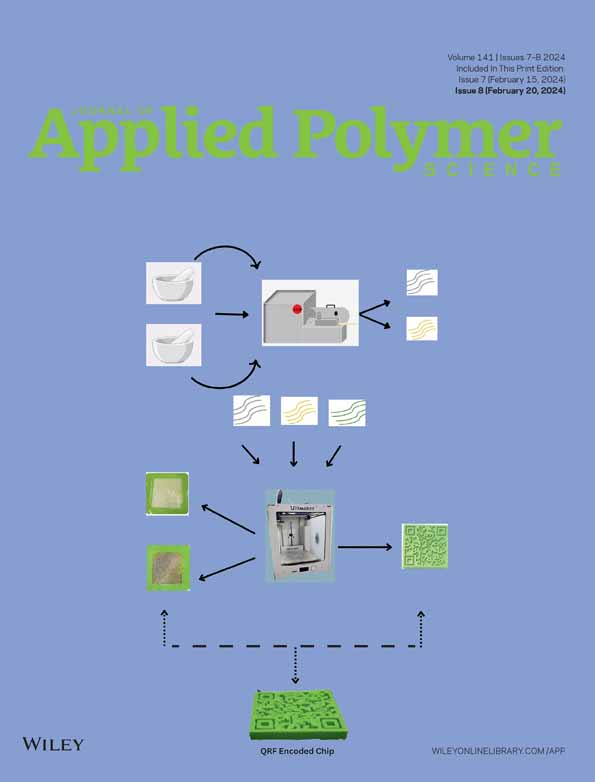Insight into the synthesis and thermomechanical properties of “short-long” type biobased aliphatic polyesters
Abstract
A series of biobased “short-long” chain aliphatic polyesters having high molecular weight were successfully synthesized using dimethyl sebacate and diols with different carbon chain lengths via a two-step melt-polycondensation method by using titanium butoxide as a catalyst. The diols chain length and its odd-even effect on the structure–property relationship, crystallinity, and thermomechanical properties of the polyesters were systemically investigated. The synthesized polyesters displayed weight-average molecular weight between 23,600 to 72,900 g/mol and a maximum intrinsic viscosity of 0.933 dL/g. With increasing the diol chain length, the molecular weight of the polyesters increased linearly, except for poly(butylene sebacate) (PBS). Altogether, the “odd-even” effect of the diol chain on the crystalline (Tc)/melting temperature (Tm), and melting/ crystallization enthalpies of the polyester's were observed. Poly(pentylene sebacate) (PPeS) has the highest weight-average molecular weight of 72,900 Da, Tm of ∼55.4°C, degradation temperature (Td,max) of about 404°C, and highest storage modulus (E′ at 25°C) of 661 MPa compared to other short-chain polyesters. PBS and PPeS showed the appearance of sharp intensity peaks from XRD diffraction patterns, indicating higher crystallinity in the material, in accordance with crystallization enthalpies (ΔHc) values from the differential scanning calorimetry (DSC) thermograms. These fabricated biobased polymers with 100% bio-content, low melting temperature range, rapid crystallization, and high thermal stability suggest good processability and can offer an alternative option to nonrenewable thermoplastic polyesters for potential applications.
CONFLICT OF INTEREST STATEMENT
The authors declare no competing financial interest.
Open Research
DATA AVAILABILITY STATEMENT
Data sharing is not applicable to this article as no new data were created or analyzed in this study.




